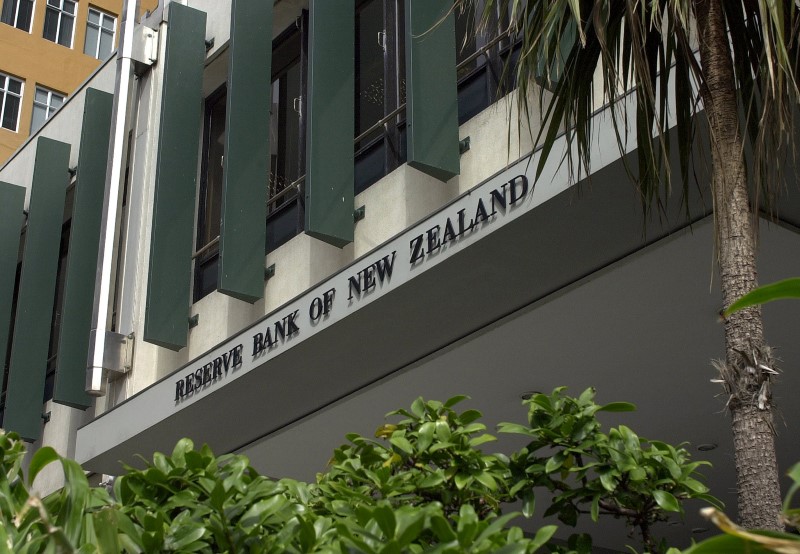By Ambar Warrick
Investing.com -- The Reserve Bank of New Zealand raised interest rates by more than expected on Wednesday, citing overheated inflation and employment as it continues to act in bringing down price pressures that are likely to stymie economic growth this year.
The RBNZ hiked its official cash rate by 50 basis points(bps) to 5.25%, more than market expectations for a hike of 25 bps. The bank was among the first global central banks to act against a post-COVID rise in inflation, and has now hiked rates by a cumulative 500 bps since mid-2021.
The RBNZ said it will now adopt a data-driven approach to gauging how much more interest rates need to rise, but noted that policy was now contractionary.
"Looking ahead, the (rate setting) Committee is expecting to see a continued slowing in domestic demand and a moderation in core inflation and inflation expectations. The extent of this moderation will determine the direction of future monetary policy," the RBNZ said in a statement.
The New Zealand dollar shot up nearly 0.8% after the decision.
But the bank warned that inflation expectations remained underpinned over the near-term, especially as adverse weather conditions led to higher prices for some goods and services. Rebuilding efforts in the wake of Cyclone Gabrielle, which was one of the worst storms to hit the country in over 50 years, are also expected to push up inflation, the RBNZ said, while adding that the inflationary effects of the cyclone are likely to be higher than previously anticipated.
New Zealand consumer price index inflation remained pinned near a 32-year high of 7.2% in the fourth quarter of 2022, well above the RBNZ’s 1% to 3% target range. The country is yet to release an inflation reading for the first quarter of 2023.
The central bank said that economic growth in the country is expected to slow through 2023, amid weakening global demand for exports, slowing local consumption, and monetary policy now entering contractionary territory.
New Zealand’s GDP fell more than expected in the fourth quarter of 2022, with growth likely worsening over the next three months as the country struggled with rising interest rates, high inflation, and worsening weather conditions.
The RBNZ also noted that New Zealand’s labor market remained “beyond its maximum sustainable level,” and that it needed to moderate further to bring down inflation.
